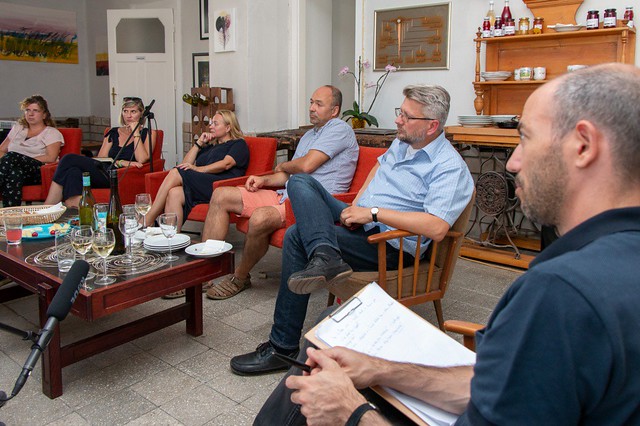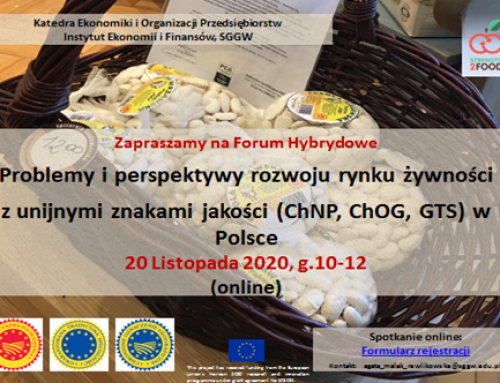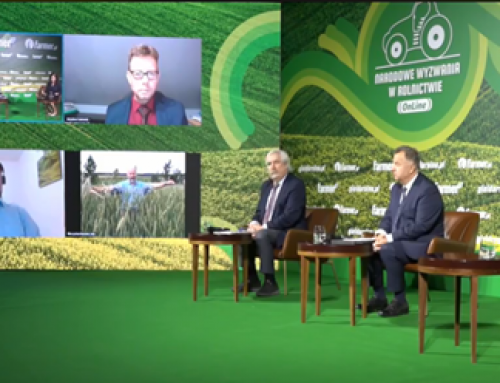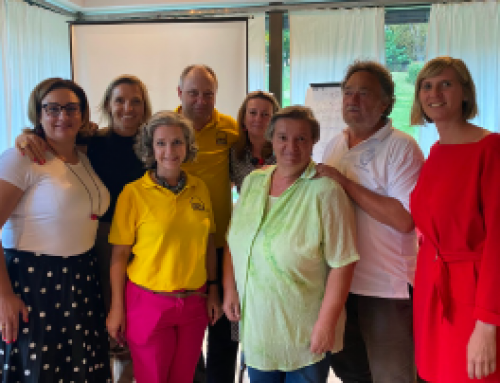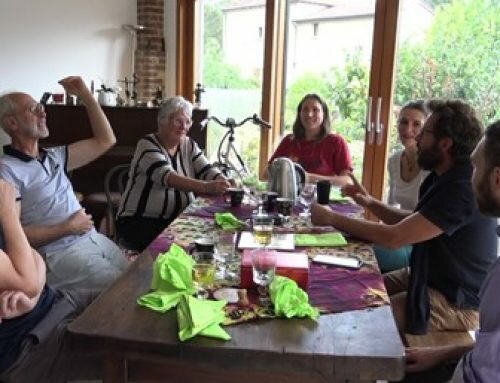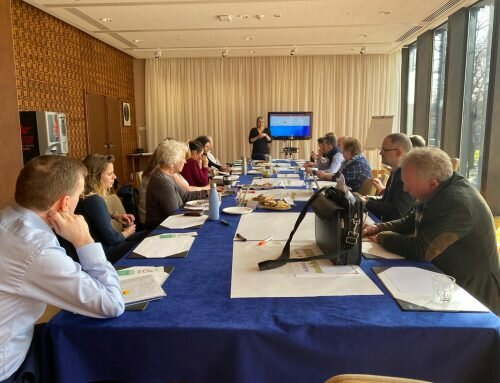The 3rd HF took place in Káptalantóti, a small former-agri village near lake Balaton. The focus was placed on the Balaton-felvidék (“Balaton Highlands”) region, a wine and fruit producing area and a popular gastro-touristic destination where, in the last three decades, the aging population of its small villages has entirely changed to long-weekend tourists from Budapest. This socio-economic change has created opportunities but has also negatively affected the local agro-food activities.
The participants of the 3rd HF were representatives of regional stakeholders, local winery owners, hotel and catering operators, food market operators representing small farmers, and consumers living in or familiar with the area.
Because of the COVID situation, the hybrid forum was promoted primarily through online social media channels, but posters and personal referrals were also used.
In the kick-off session, the quality trademark presentation that had previously been introduced on the occasion of the Szekszárd and Szentendre forums was introduced to the participants and followed by a presentation by the association of wineries around Lake Balaton, which explained the operating scheme of the association.
The participants agreed that the region is administratively fragmented and there is no uniform regional local value or product advocacy/strategy known to the local producers and traders. In addition to a single regional trademark, there may be a wide variety of trademarks applied to smaller territorial units or certain product types. Even if a major regional trademark has not been created yet, exchanges of experience and knowledge between local organisations would be beneficial, but today there is a lack of central coordination to organise such initiatives.
Local food producers are typically small or larger sized family businesses, selling their products on the farm or in farmers markets. On the producer side, cooperation between wineries is the most common; it comprises the development of common quality standards (e.g. Balaton wine) and the organisation of promotional actions of their products. Producers mentioned as a problem the fact that, despite the openness of hotels and restaurants to market local products, the demand for food in the region is highly seasonal (over-demand during the summer months, unused capacities in the off-season).
One of the main challenges is the lack of cooperation among local residents. As the region’s tourist appeal increases, the region has become one of the most preferred destinations for those resettling from the capital in recent years, displacing local (potentially farming) natives. There is no strategy for the integration of locals and settlers, making it difficult to establish common goals. The number of local farmers is constantly decreasing. It is easier and cheaper to buy fruit and vegetable in the store than to work on their production and native consumers are more price sensitive than settlers from larger cities, so producers cannot develop a general long-term price strategy.
The central organisations (municipality, tourist information office) are not active enough in supporting, organising, and promoting local initiatives. There is a lack of people who can and are willing to coordinate local initiatives in the long term (there are periodic flare-ups and then they get tired). Advocacy usually takes the form of a local private initiative.
In addition to purchasing local products, newly settled consumers have a great deal of openness to participate in the organisation of the local community and production chains. Several regional cooperation initiatives experienced elsewhere were discussed by the participants. The participants agreed on organising further discussions.


